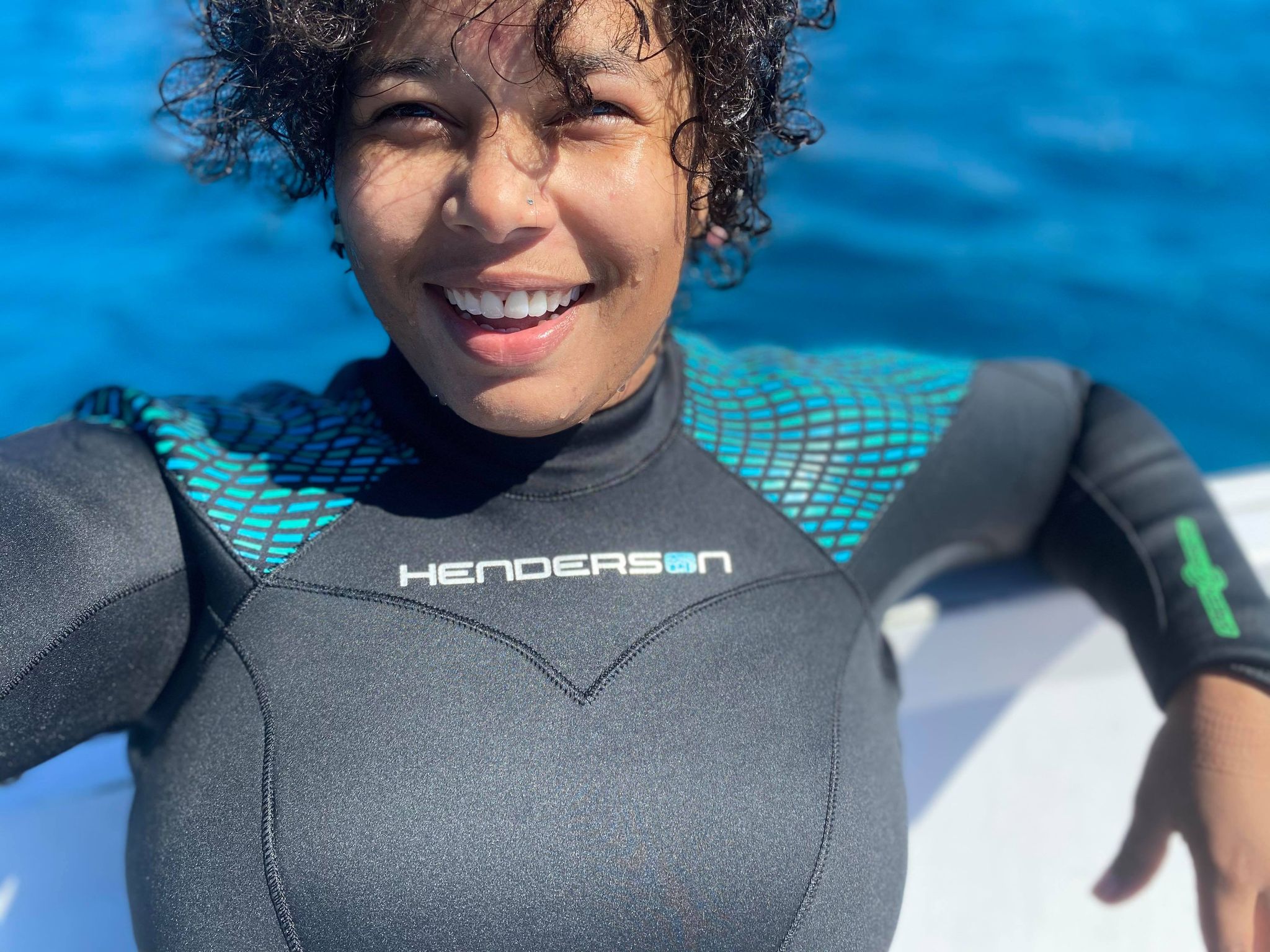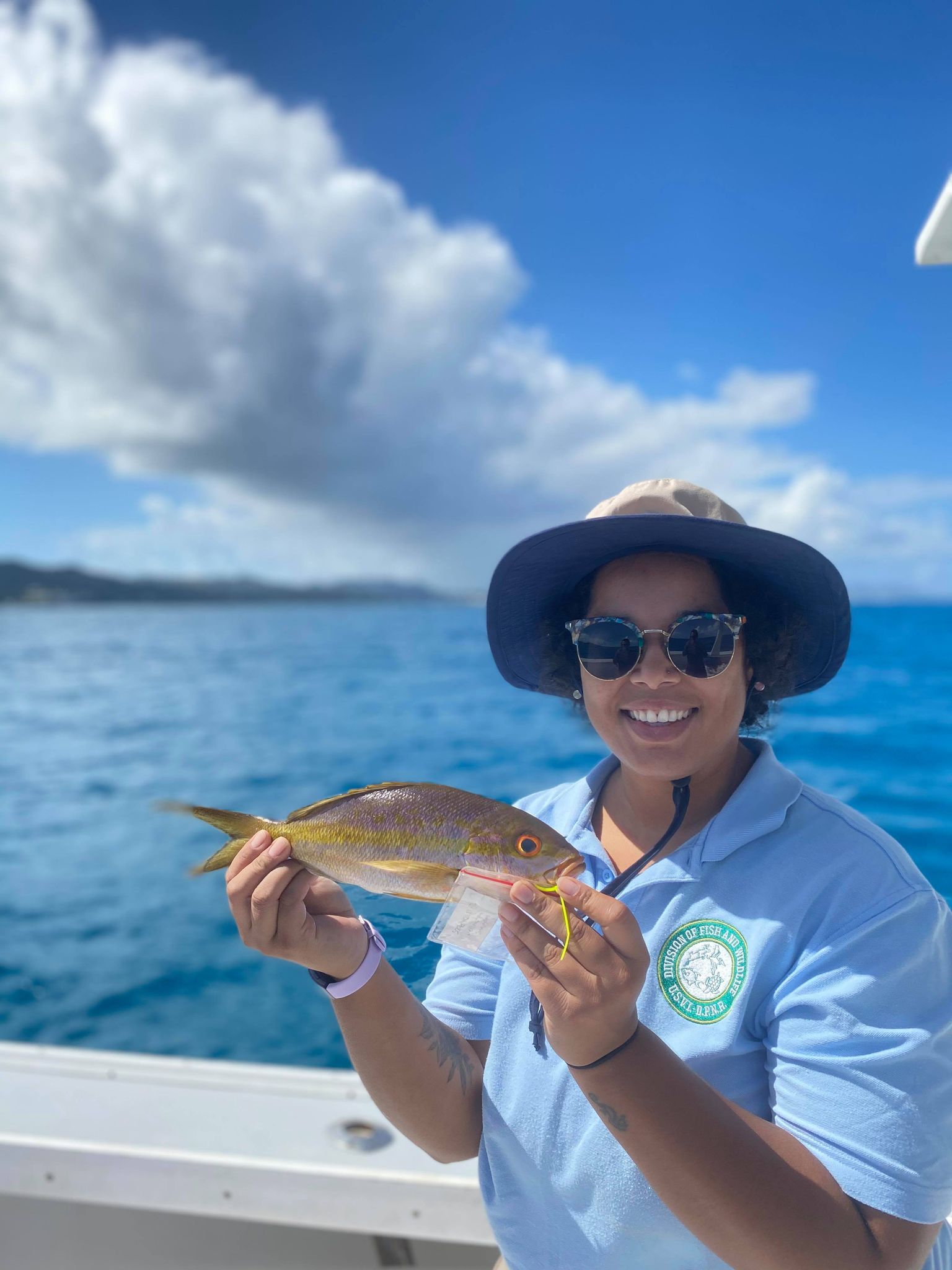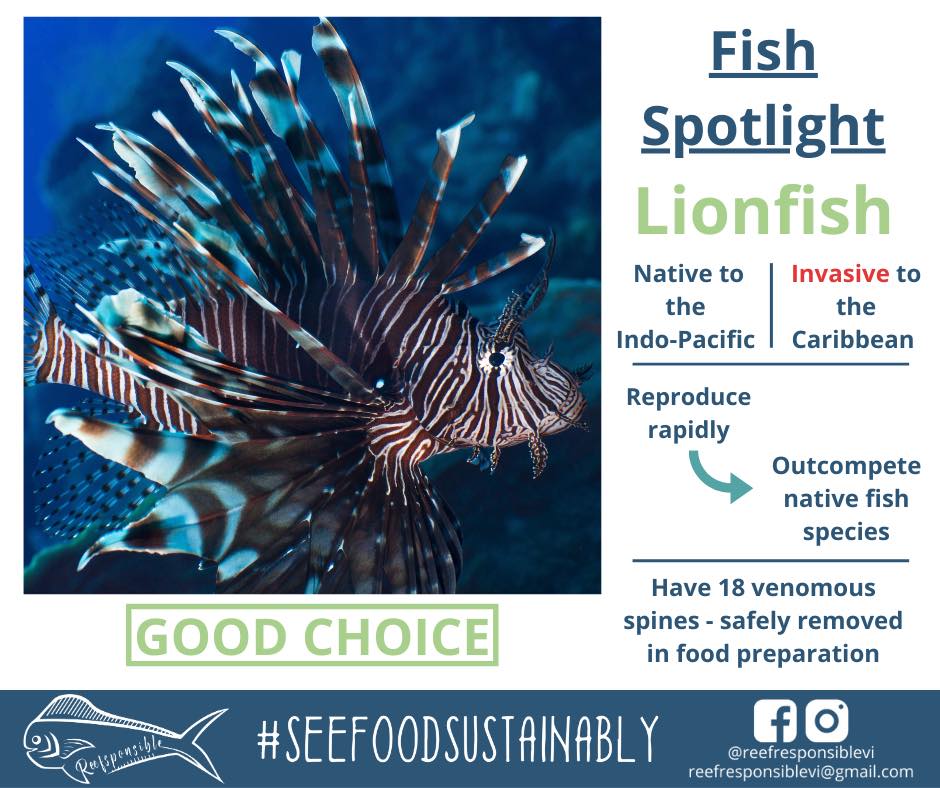Name: Christina Carter
Position: Fisheries Biologist II, Division of Fish and Wildlife, U.S. Virgin Islands
Program: Masters of Fisheries and Aquatic Sciences (‘19)
Christina Carter practically grew up on the water — as a young child, she first learned to sail on her family’s boat. When she was 18, she even spent a year sailing across the Atlantic and back with her parents and brother. Those experiences sparked an early interest in the ocean, and when it came time for college, Carter sought out a degree in Biological Oceanography from Old Dominion University.
After earning her bachelors, she was eager to get into the field.
“When I first graduated with my bachelor’s degree I did not want to go to grad school. I just wanted to be out there doing the thing I’d been trained to do,” Carter said.
“I wanted to be as hands on as possible, which made me realize that oceanography wasn’t necessarily the path for me,” she said. “I found a position with the U.S. Fish and Wildlife Service in Annapolis, MD and that’s where I found that fisheries was the route I wanted to take and my passion grew for the field.”
 Carter held several short-term contract positions in North Carolina and Michigan before landing a permanent position with the U.S. Fish and Wildlife Service Sea Lamprey Control Program.
Carter held several short-term contract positions in North Carolina and Michigan before landing a permanent position with the U.S. Fish and Wildlife Service Sea Lamprey Control Program.
“After about two years with USFWS SLCP, I decided I wanted to learn more,” she said. “But since work is my happy place, there was no way I was giving up my job. I decided the best fit for me would be an online program.”
Carter found the Fisheries and Aquatic Sciences online masters program with SFRC.
“For me personally, I’m glad that I got my bachelors and then went out into the real world to get experience before going back to school,” she said. “It really helped me put together everything I was learning in the classroom with the actual application in my career.”
Carter thrived in the online environment, and working with her advisor, Dr. Mike Allen, was able to graduate in just under a year and a half.
“Having a professional masters degree for people who can’t stop (or don’t want to stop) working is really important, and it made all the difference for me,” said Carter. “I wanted to do it my way, and I’m so thankful that I could.”
A NEW ADVENTURE
 In March 2020, Carter moved to the Virgin Islands for a new position as a Fisheries Biologist with the Division of Fish and Wildlife.
In March 2020, Carter moved to the Virgin Islands for a new position as a Fisheries Biologist with the Division of Fish and Wildlife.
She arrived just one week before widespread shutdowns due to COVID-19. Some projects that she had planned were no longer possible due to new restrictions. Fortunately, she’s been able to stay productive, through a combination of remote work and social distancing while on location.
One project that her team recently re-launched is the Reef Responsible Sustainable Seafood Initiative. Reef Responsible is a voluntary program designed to promote sustainability for the seafood industry in the Virgin Islands.
“We’ve designed posters, pamphlets, and even a fish fact book, all geared towards fishers, restaurants, and consumers,” Carter said. “Basically, we want to spread awareness that our choices affect our surroundings; so we share information on how you can consume seafood in a way which will benefit our coral reef ecosystems.”
The program encourages consumers to support local fishers, and be more aware of what types of seafood they’re eating.

“My favorite thing about this position is that I feel like I’m making a difference, working hard for the Virgin Islands alongside the community of locals,” said Carter. “I just want to be the best fish biologist I can be for the territory.”
MAKING THE OCEAN ACCESSIBLE
In Carter’s free time, she runs an educational YouTube channel called “Sea More with Curby” (Curby is her college nickname, earned after a driving mishap and popped tire). Carter creates videos highlighting different fish species, using footage that she takes while snorkeling or diving.
“My most recent video was on porcupine fish. It’s so exciting to me to get to share this with others,” she said. “I just want everyone to be excited about fish!”
 1
1


